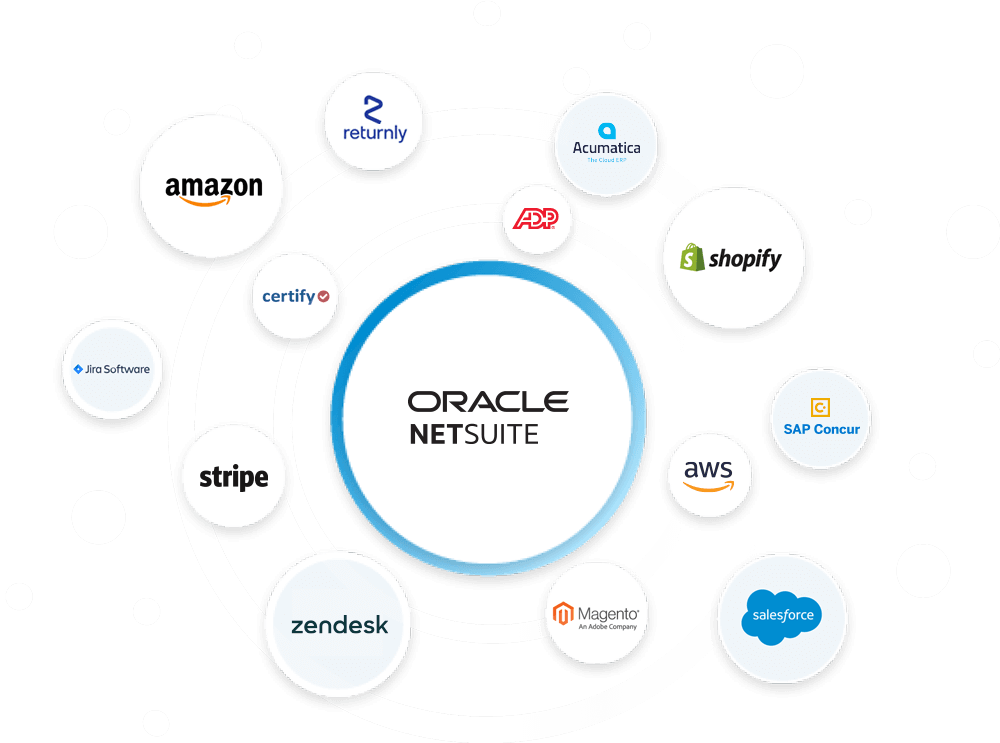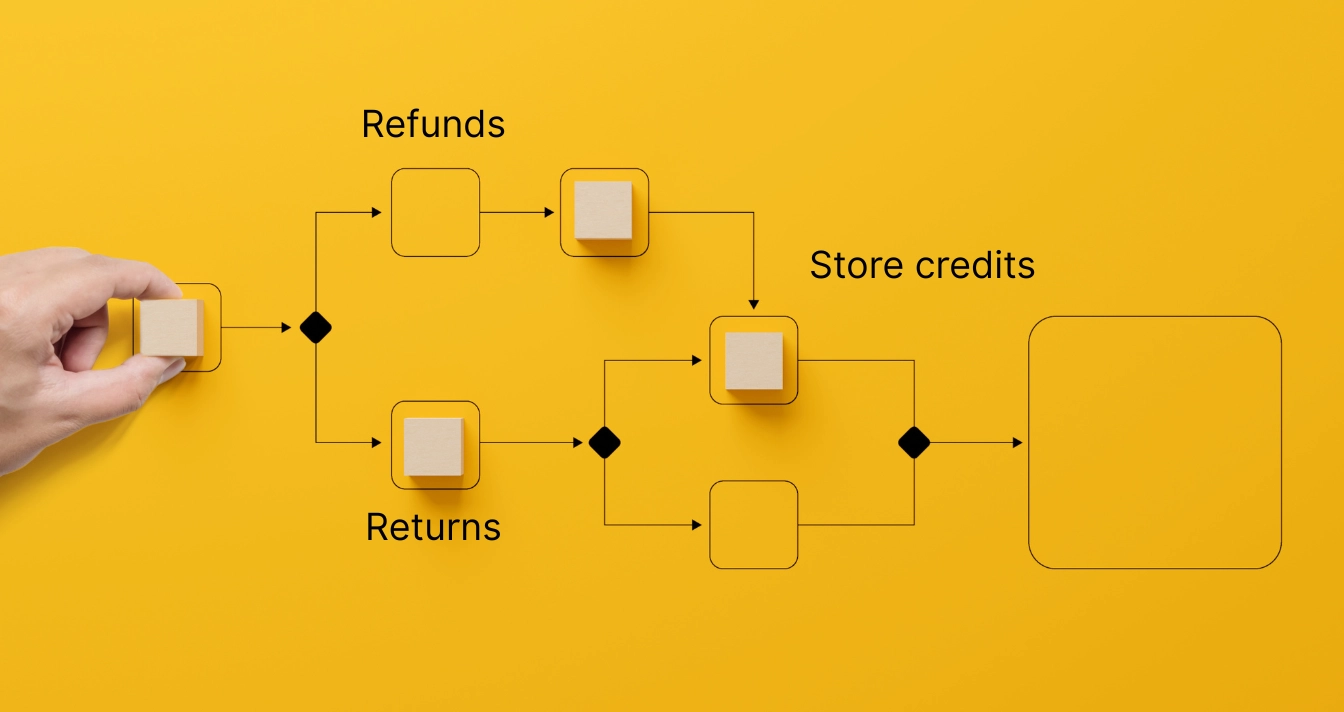Combining the viral potential of TikTok with the efficiency of NetSuite is a tempting proposition for e-commerce businesses – and rightly so. A high-quality TikTok Shop to NetSuite integration can unlock new avenues for revenue, streamline your critical operations, and enhance customer engagement. And how?
At Hairball, we have completed dozens of NetSuite integrations with numerous platforms, and we know exactly how to make one work for your store as well. So in this article, we’ll delve into TikTok Shop, NetSuite and their standout features – and then outline the steps and best practices necessary for a successful integration.
What Is TikTok Shop?
Launched by ByteDance, TikTok Shop is an e-commerce platform integrated within TikTok that aims to provide a good shopping experience to its 1 billion global user base. This integration makes TikTok not just a content-sharing app, but also a powerful social commerce tool. Its powerful features and capabilities make it a valuable addition to any e-commerce strategy, especially when integrated with robust ERP systems like NetSuite.
Some of TikTok Shop’s key features include:
- In-App Shopping Experience: TikTok Shop allows users to browse, purchase, and pay for products without ever leaving the app. This reduces friction in the shopping process and increases the likelihood of impulse purchases.
- Product Listings and Catalog Management: Merchants can create detailed product listings within TikTok Shop – they can include images, videos, descriptions, prices, and other relevant information to attract potential buyers. The management of these catalogs is straightforward and can be done through the TikTok Shop Manager dashboard.
- Livestream Shopping: One of the platform’s standout features – influencers can host live sessions to showcase products in real time. Viewers can interact with hosts, ask questions, and make purchases directly during the livestream.
- User-Generated Content (UGC): TikTok Shop encourages the use of user-generated content to promote products. Customers who purchase products can create videos showing how they use them, which can be featured by the brand.
- Targeted Advertising: TikTok’s advanced algorithm can be used to run targeted ads promoting products listed on TikTok Shop. These ads can reach specific demographics based on user interests, and interaction patterns, ensuring that products are shown to the most relevant audiences.
Introduction to NetSuite's E-commerce Capabilities
NetSuite is a cloud-based ERP (Enterprise Resource Planning) solution that provides a unified platform for managing various aspects of business operations, including finance, inventory management, customer relationship management (CRM), and more. Its most distinguishable features are:
Unified E-commerce Platform
When implemented by a team of professionals, NetSuite brings together website management, order processing, inventory management, and customer service into one centralized platform. With it, you can manage your website content, process orders, update inventory levels, and handle customer inquiries – all from a single dashboard. This eliminates the need to juggle multiple systems, saving you time and reducing the risk of errors.
Website Management
NetSuite also offers flexible website management features, with which you can easily create custom landing pages, add product images and descriptions, and run promotional campaigns without needing to know a single line of code.
Product Catalog Management
If you are a retailer with hundreds of SKUs, NetSuite can massively help you with organizing your inventory by category, attribute, and price range. Plus, with real-time inventory tracking, you’ll always know when to restock popular items, preventing stockouts and missed sales opportunities.
Order Processing
With NetSuite, when a customer places an order, the order is automatically routed to your fulfillment center for processing. NetSuite’s built-in workflows then generate packing slips, update inventory levels, and notify the shipping carrier without any manual intervention. This ensures that orders are fulfilled accurately and quickly, delighting your customers and encouraging repeat purchases.
Customer Relationship Management (CRM)
NetSuite allows you to track customer preferences so that you can personalize their experience and anticipate their needs. For example, if you’re a food outlet and your customer prefers vegetarian meals, you can automatically recommend new vegetarian recipes or offer special promotions on plant-based ingredients, enhancing their loyalty to your brand.
Powerful Marketing Tools
Lastly, the platform’s marketing and merchandising tools help you create targeted email campaigns to promote your new products, track customer engagement with your website, and even run A/B tests to optimize your messaging. By analyzing which campaigns generate the most sales, you can refine your marketing strategy over time, maximizing your ROI.
Integration Opportunities Between TikTok Shop and NetSuite
Integrating TikTok Shop to NetSuite creates a host of opportunities for any E-commerce business, provided that the integration is well-handled. Some of its main benefits revolve around enhanced inventory and order management, analytics and reporting as well as marketing:
Centralized Inventory Management
By integrating TikTok Shop with NetSuite’s inventory management system, you can get a centralized view of your inventory. Practically speaking, this means real-time sync of inventory levels, ensuring accurate stock availability for TikTok Shop listings. For example, when a product is sold on TikTok Shop, NetSuite automatically adjusts the inventory count, preventing overselling and fulfillment errors.
Seamless Order Processing and Fulfillment
Integrating TikTok Shop orders directly into NetSuite also streamlines the order processing and fulfillment process. When a customer makes a purchase on TikTok Shop, the order details are instantly imported into NetSuite, where they can be processed alongside orders from other channels. This helps you with efficient picking, packing, and shipping, as well as ensures timely delivery of your products.
Rich Data-Driven Insights
You can also gain valuable insights into customer behavior, product performance, and the most critical sales trends. This, in turn, will help you with targeted marketing for various demographics of your TikTok Shop customers. This way, your analysis of TikTok Shop engagement metrics can inform your personalized promotions and product recommendations, hopefully leading to higher conversion rates.
Strong Financial Reporting and Accounting
All sales data from TikTok Shop also flows into NetSuite, where it can be reconciled, categorized, and reported alongside other revenue streams. This feature will improve your financial reporting, enabling you to generate accurate income statements, balance sheets, and cash flow reports in real time.
Omnichannel Marketing
Lastly, the TikTok NetSuite integration will boost your existing sales and marketing practices. NetSuite’s unified customer database facilitates consistent messaging personalized experiences across all touchpoints, from TikTok Shop to the company website and beyond.
Preparation for Integration
Before the integration, you need to make sure that you know your end goals. Both tactical and strategic objectives need to clearly defined, along with the technical details and success metrics for the integration:
Assessing Business Needs and Objectives
Analyze your current e-commerce operations and determine the specific challenges that TikTok Shop and NetSuite can address – those could be inventory management inefficiencies or disjointed order processing workflows.
On top of that, clearly define the goals you aim to achieve with the integration – increasing sales, improving operational efficiency, or enhancing customer engagement are all common examples. When doing so, collaborate with other departments (sales, marketing, finance, IT) to ensure that integration efforts will align with everyone’s needs.
Reviewing Technical Requirements
The most important thing here is to verify that the integration tools and connectors you plan to use are compatible with the latest versions of TikTok Shop and NetSuite. In this instance, a connector like Celigo can be a great fit, as it responds well to both platforms.
Also analyze the data structures and formats used by TikTok Shop and NetSuite to determine how data will be mapped between the two systems. Identify key data fields such as product information, order details, and customer data – and make sure that compatibility is achievable.
Establishing Integration Metrics
Define your key performance indicators (KPIs) to measure the success of the integration project. Most commonly there are order processing times, inventory turnover, sales conversion rates, and customer satisfaction scores.
Most importantly, make sure that these integration metrics actually align with the broader business objectives that you have identified at the start. Also focus on those that tend to drive tangible business value, such as revenue growth or cost savings.
Steps to Integrate TikTok Shop with NetSuite
In our opinion, an efficient TikTok Shop integration to NetSuite is best described in the following five steps:
- TikTok Shop Account Configuration
- NetSuite Account Configuration
- TikTok Shop to NetSuite Connection
- Platform Data Sync
- Testing and Troubleshooting
Step 1: Setting Up TikTok Shop Account
Visit the official TikTok Shop website or app and initiate the application process for a TikTok Shop account. Be compliant with eligibility requirements for your target market and provide all necessary information accurately.
Upon approval, access the TikTok Shop Manager dashboard. Take the time to explore the dashboard’s features, including product listing management, livestream scheduling, and order tracking.
Step 2: Configuring NetSuite Account for Integration
Log in to your NetSuite account and go to Integration Management. From there, enable API access to facilitate communication between the platforms, and configure API permissions to specify the level of access required for data exchange.
Define your order management workflows within NetSuite to handle orders from TikTok Shop. Also make sure to configure rules for order processing, shipping preferences, inventory updates, and fulfillment procedures.
Step 3: Connecting TikTok Shop to NetSuite
Choose a reputable integration platform or utilize pre-built connectors specifically designed for TikTok Shop and NetSuite integration. For instance, our Hairball team gives preference to Celigo as we believe it to be the most balanced tool in terms of strength, flexibility and user-friendliness.
Authenticate integration credentials for TikTok Shop and NetSuite to establish a secure connection. Then follow authentication procedures provided by the integration platform and ensure compliance with security protocols.
Step 4: Syncing Data Between Platforms
Identify and map key data fields such as product details, customer information, and order details between TikTok Shop and NetSuite. Once you’ve done that, you may initiate the data sync between TikTok Shop and NetSuite.
Step 5: Testing and Troubleshooting Integration
Post-integration, perform thorough testing of the integration to validate functionality and identify potential issues – test data synchronization, order processing workflows, inventory updates, and customer notifications.
Utilize dashboards and monitoring tools provided by the integration platform to monitor overall system performance. Watch over your data flow, error logs, and system alerts to detect any anomalies or performance issues and address them promptly.
Best Practices for Maintaining Tiktok to Netsuite Integration
Lastly, we’d like to provide you with a handful of recommendations to ensure that your interaction is a success:
Regular Monitoring and Performance Analysis
Implement monitoring tools such as NetSuite’s SuiteAnalytics and TikTok’s Shop Manager analytics to track the performance of the integration in real-time. With those, you can monitor key metrics including data synchronization speed, error rates, and transaction volumes to detect any anomalies.
Conduct regular performance reviews on a weekly or monthly basis, during which you should evaluate factors such as synchronization latency, data accuracy, and system uptime – and take corrective action if needed. Another good idea is to implement automated alerts and notifications for critical events.
Ensuring Data Security
Implement robust encryption mechanisms such as AES encryption for sensitive data transmitted between TikTok Shop and NetSuite. Encrypt data at rest and during transit to protect against unauthorized access or data breaches – use secure protocols such as SSL/TLS for data transmission.
Also make sure to perform security audits – penetration testing and security scanning to identify weaknesses in network infrastructure, application architecture, and data handling processes.
Keeping Up with Platform Updates
Subscribe to official channels, release notes, and developer documentation to receive timely updates about new features and bug fixes. If possible, allocate time to participating in user forums and developer conferences to know about all the latest developments in e-commerce and ERP technology.
Based on that information, you should develop a roadmap for version upgrades – coordinate with internal stakeholders, your IT team, and integration partners to effectively plan and execute those. And before implementing the updates in the production environment, conduct thorough testing in a sandbox or testing environment. Verify the update’s compatibility with existing integration configurations, and develop rollback procedures and contingency plans in case of unexpected issues.
Continuous Optimization
You should conduct performance tuning exercises all throughout the system’s lifetime – keep addressing bottlenecks in database performance, network bandwidth, and server resources. For that purpose, you can use various monitoring tools as well as feedback from end-users.
Conclusion
Integrating TikTok Shop to NetSuite offers e-commerce businesses a potent combination of social media marketing and robust operational management. TikTok Shop’s key features, such as in-app shopping, livestream shopping, user-generated content, and targeted advertising, make it a valuable tool for reaching a vast audience and driving impulse purchases. Meanwhile, NetSuite’s unified platform supports various business operations, from website and inventory management to order processing and CRM, ensuring streamlined and efficient workflows.
However, successful integration requires thorough preparation, and a well-structured process – something that not all teams can handle on their own. That’s why, should you experience any problems before, during or after the TikTok Shop with NetSuite integration process, don’t hesitate to reach out to a team of professionals like Hairball – we will get the job done.



